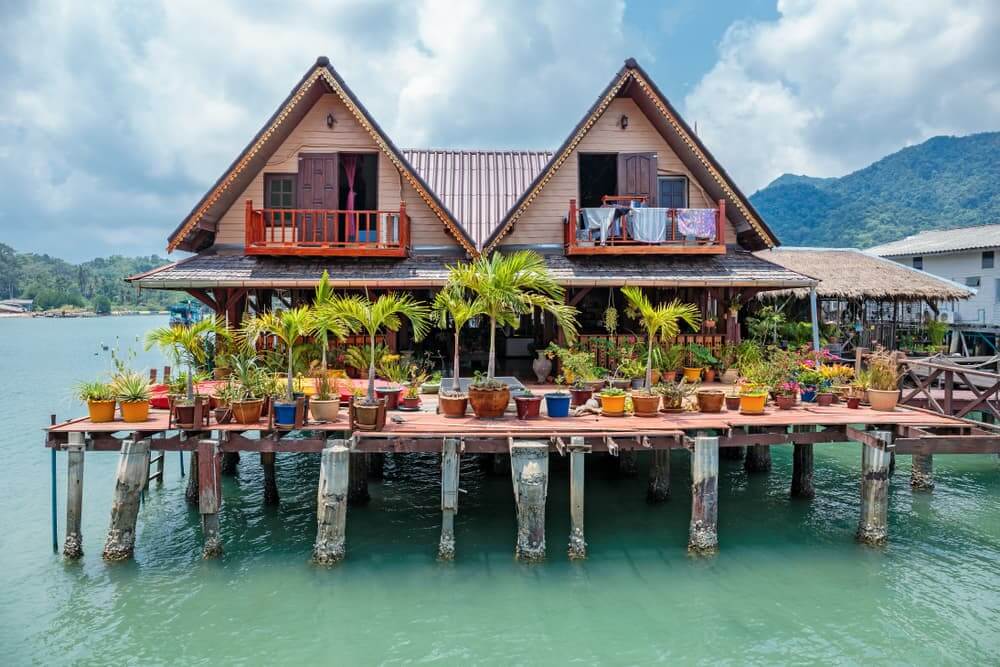How much does it cost to build a house in Poland?
How much does it cost to build a house in Poland as a UK expat? Find out in our essential guide, covering everything you need to know.

Thailand is well known as a holiday paradise, with its golden beaches, fabulous weather and breathtaking scenery. But it’s also a haven for expats, drawn there by cheap property prices, low cost of living, friendly people and of course, incredible food.
But there are some hurdles a foreign buyer must navigate when buying property in Thailand. In this guide, we’ll run through everything you need to know, from property prices to legal requirements.
So if you’re dreaming of living, retiring or investing in Thailand, read on.
The Covid-19 pandemic has had a major impact on Thailand’s economy, especially in relation to tourism. This has also affected the housing market, with house prices either static or falling. Demand for properties has also fallen, along with construction activity¹.
One housing type that remains relatively unaffected is condominiums², which continue to attract local and foreign buyers - and with no sign of oversupply.
Looking ahead, the housing market in Thailand is predicted to recover², although it depends on the country’s economic growth and whether further Covid outbreaks emerge.
Foreigners aren’t permitted to buy land in Thailand, but you can buy apartments and condominiums as a non-citizen.
However, foreigners can’t make up more than 40% of the apartment block or condo’s total unit owners. Interestingly, you can buy the whole building as a foreigner, but not the land on which it is built.
You may also be able to purchase a Thai villa or larger property (but not the land) by entering into a leasehold agreement.
Another option to explore if you want to buy land or a house in Thailand is setting up your own private limited company. As long as it has mixed Thai and foreign ownership, and foreign ownership is 49% or less, the company can be used to legally buy land or property in Thailand. You’ll almost definitely need a lawyer if you want to go down this route.
It’s understandable to be a little nervous when buying property in another country, where the laws and processes are different to what you’re used to. There’s also the fact that Thailand’s housing market isn’t as regulated as some other countries.
But provided you do your research and take sensible steps to protect yourself, you should find buying property in Thailand perfectly safe.
One of the most important things you should do is hire a reputable and independent real estate lawyer³. The realty industry in the country is unregulated, so an experienced lawyer will be essential for navigating the complicated buying process. This includes handling all paperwork, due diligence checks and legal requirements.
So, how much will a property in Thailand cost you to buy? To help you plan your budget, let’s take a look at average prices per square metre for apartments (as this is the housing type foreigners can freely purchase) in major cities and towns across the country.
| Location | Price per sq.m - apartment in city centre | Price per sq.m - apartment outside city centre |
|---|---|---|
| Bangkok⁴ | £4,241 | £1,976 |
| Phuket⁵ | £2,305 | £1,549 |
| Chiang Mai⁴ | £1,549 | £956 |
| Koh Samui⁵ | £793 | £453 |
| Pattaya⁴ | £1,526 | £857 |
Thailand has a wealth of sun-drenched coastal resorts and pretty countryside spots. Here are some of the best places to buy property in Thailand:
If you’re not living in Thailand, it could be useful to use a local estate agent to help you hunt down that dream property to buy. After all, they’ll have knowledge of the local market and can offer advice on the buying process.
However, you should proceed with caution when using a Thai estate agent. In Thailand, anyone can become an estate agent⁶ - there’s no regulation or a requirement for training, licensing or certification. This means the quality of services provided can vary.
So, it could be an idea to choose an agent based on a personal recommendation if possible. Don’t be afraid to ask lots of questions, and do as much research as you can into the agency and their background.
There’s no reason you can’t start your property search online, before you’ve even set foot in Thailand. Kick off your property hunt by browsing listings on some of Thailand’s biggest real estate websites, such as⁷:
One of the biggest mistakes you can make when buying property in Thailand is not using a specialist real estate lawyer. It isn’t legally required, but it is strongly recommended. Without one, it’s easy to blunder into unnecessary complications and delays, and even accidentally fall foul of the law.
Other things to watch out for include⁸:
Among the most popular types of property in Thailand with foreigners are apartments and condos. These are usually found in the heart of major cities and tourist hotspots. But many are also attracted to Thailand’s spacious villas, which make particularly good holiday homes.
The property type you choose all depends on where you’re buying and your budget. And of course, the legal complexities involved in buying property in Thailand as a foreigner.
While it’s not mandatory to get a building survey done in Thailand, it could be a smart move. An inspection by a qualified surveyor can help you assess the condition of the property before purchasing, and uncover any potentially worrying problems.
You can find a surveyor using the RICS (Royal Institution of Chartered Surveyors) website, as it has listings for Thailand.
Let’s run through the process of buying a home in Thailand³:
You can expect the process of closing the sale to take between 30-60 days³, although of course it can take longer.
Most of the legal conditions for buying property in Thailand are tied up in the restrictions for foreign buyers. It’s important to talk everything through with your lawyer, to make sure you understand the conditions and complexities of the law.
Another legal requirement to know about relates to foreign currency. Any money sent from abroad to pay for a property purchase in Thailand must be converted to Baht and clearly labelled to show what it’s for³.
It can be extremely difficult for foreigners to get a mortgage from a Thai bank⁹. This is why many expats apply for an international mortgage in their home country.
But it may be possible if you meet one of the following criteria⁹:
If you are eligible, you can expect Thai banks to lend you around 40-80% of the property’s asking price. Loan terms are typically around 10 years. You can also expect mortgage rates in Thailand to be higher than you’re used to.
To apply for your mortgage, you’ll need a long list of documents including - your passport, residency/visa documents (if applicable), proof of income, recent payslips, and documents relating to the property purchase.
Many of the costs involved in Thai property purchases are paid by the seller, including stamp duty. However, there are still some fees buyers need to know about, such as⁹:
If you live in the UK while starting your property search in Thailand, it’s worth thinking about how you’ll send money abroad when the time comes. There’s a deposit to pay, along with legal fees and the balance of the property price.
Sending money internationally with a bank can often mean a slow, expensive transfer, where you lose cash along the way to poor exchange rates.
Wise offers a better solution. Open a Wise multi-currency account and you can send money from the UK to Thailand for low, transparent fees and the mid-market exchange rate. All things considered, it could be significantly cheaper than your bank.
Sending money overseas with Wise is trackable and secure, which all to give you peace of mind when making such a large and important purchase.
Sources used for this article:
Sources checked on 15-04-2022.
*Please see terms of use and product availability for your region or visit Wise fees and pricing for the most up to date pricing and fee information.
This publication is provided for general information purposes and does not constitute legal, tax or other professional advice from Wise Payments Limited or its subsidiaries and its affiliates, and it is not intended as a substitute for obtaining advice from a financial advisor or any other professional.
We make no representations, warranties or guarantees, whether expressed or implied, that the content in the publication is accurate, complete or up to date.

How much does it cost to build a house in Poland as a UK expat? Find out in our essential guide, covering everything you need to know.

How much does it cost to build a house in Greece as a UK expat? Find out in our essential guide, covering everything you need to know.

Read our comprehensive guide to buying a house abroad, including how to arrange finance for overseas property purchases.

Read our roundup of 8 of the best places to buy land in the world as a Brit, looking at average land prices, buyer’s costs and more.

Read our guide to selling property in India and bringing money to the UK, covering taxes, transfer methods and other essential information.

Read our essential guide to investing in US farmland from the UK, including rules on foreign land ownership, average prices per acre, and much more.